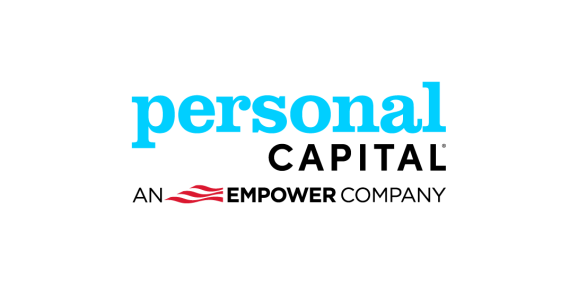
Fiduciary is a term used to describe someone who acts in the best interest of another person. It is someone who has a duty protect the interests of another person regardless of whether they're a client, competitor, or both. There are many ways that a fiduciary could protect the interests and assets of others. These include investing in diversified portfolios and avoiding conflicts.
Investing in a diversified portfolio
Diversifying your investment portfolio can lower the risk of market losses. You should diversify your investments across multiple industries to minimize your exposure to one industry or sector. While investing in individual stocks, you are exposed directly to the risks associated with the company and the overall market. To build a diversified portfolio, you should invest in a number of different stocks.
First, determine your investment goals and risk tolerance in order to create a diversified portfolio. You will then be able to determine which investments are most suitable for your goals. You should also consider your financial situation as well as your timeline. For example, if your retirement date is 60-five years, it's a good idea to invest more in stocks than bonds. A well-diversified portfolio should be made up of both growth and dividend stocks.

Diversified portfolios can lower the uncompensated investment risk. A diversified portfolio allows fiduciaries to reduce the uncompensated risk and increase the compensated. This helps to reduce portfolio volatility while minimizing the financial loss that uncompensated potential risk can cause.
Creating an investment policy statement
A fiduciary responsibility that is most important is the creation of an Investment Policy Statement. It provides a framework for portfolio construction and ongoing management efforts, and keeps clients focused on their stated goals. Both the client's financial advisor and client should easily be able understand it. It should provide useful information that both parties can use as they see fit.
An IPS should reflect a company's mission and values. It should provide clear guidelines on risk-taking and set clear, achievable objectives. It is the foundation for an organization’s overall governance. It should include the responsibilities of the board of directors, relevant committees, and outside parties. The IPS should also be based in accordance with best practices for nonprofits' type of governance.
A well-written statement of investment policy usually includes the following sections. A well-written IPS explains how portfolios and results are managed. It should be understood by both the client and the advisor.

Avoiding conflict of interest
If you are a fiduciary, it is important to avoid conflicts of interest. Although conflicts can be difficult to disclose to investors and communicate to them in a clear and concise manner, they should be made known and understood. To assess the risk of conflicts, firms should examine their client relationships and business models to devise strategies to minimize them.
It is essential to disclose potential conflicts of interests and get consent. In all cases it is best not to go overboard. Investment advisors must adhere to strict fiduciary standards according to the Investment Advisers Act. Rule 204A-1 obligates investment advisers to adhere to their fiduciary obligations and supervise employees. Although it may seem simple, failure to disclose conflicts can lead to disciplinary action and breach of fiduciary duty claims.
The fiduciary may also be a beneficiary. This is another problem that could arise. This can be a big issue because beneficiaries can challenge the fiduciary's impartiality. This could result either in civil liability or the termination of the position.
FAQ
Can anyone be a Consultant?
A consultant is someone who can help you reach your goal by providing advice on ways to make things better, more cost-effective, etc.
You may need a consultant to help you with problems, make decisions or negotiate with others.
Many consultants are hired for specific projects and tasks.
In fact, most consultants are paid hourly or daily rates rather than per project.
What's the difference between an advisor and a consultant?
An advisor gives information on a topic. A consultant provides solutions to problems.
A consultant works directly with clients to help them achieve their goals. Advisors advise clients indirectly via books, magazines, lectures and seminars, etc.
How much does it cost to hire a consultant?
The cost to hire a consultant depends on many factors. These factors include:
-
Project size
-
Time frame
-
Scope of work
-
Fees
-
Deliverables
-
Other considerations include experience level, geographic location, and so forth.
Is it necessary to pay taxes on consulting income
Yes. You will have to pay taxes on your consulting profits. The amount depends on how much you earn per year.
If you are self employed, you can claim expenses in addition to your salary. This includes rent and childcare.
However, you can't deduct interest payments for loans, vehicle depreciation or the cost to purchase equipment.
You cannot claim back less than PS10,000 in a given year.
Even if you earn more than the threshold, you could still be taxed depending upon whether you are classified as a contractor and/or employee.
The tax system for employees is PAYE (pay-as-you earn), while VAT is applied to contractors.
What does it mean to be a consultant?
A consultant is someone who offers services to others. This is more than a job title. You help others achieve their goals. This is done by helping others understand their options and making the right decisions.
Consultants can help you solve problems or overcome challenges when working on projects. They offer guidance and advice about how to implement such solutions.
Consulting should be able answer any questions related to technology, finance, law and management.
What is the average time it takes to become a consultant
Your industry and background will determine the length of time it takes. Most people begin their journey with less than a month before finding work.
Some consultants, however, spend many years perfecting their skills before they find work.
Why would a company pay a consultant?
A consultant provides expert advice on how to improve business performance. They don't sell products.
A consultant assists companies in making better decisions by offering sound analysis as well as suggestions for improvement.
Consultants often work closely alongside senior management teams to help understand what they need to succeed.
They offer leadership coaching and training to help employees reach their full potential.
They might advise businesses on how to reduce costs, streamline processes, or increase efficiency.
Statistics
- According to IBISWorld, revenues in the consulting industry will exceed $261 billion in 2020. (nerdwallet.com)
- 67% of consultants start their consulting businesses after quitting their jobs, while 33% start while they're still at their jobs. (consultingsuccess.com)
- So, if you help your clients increase their sales by 33%, then use a word like “revolution” instead of “increase.” (consultingsuccess.com)
- Over 62% of consultants were dissatisfied with their former jobs before starting their consulting business. (consultingsuccess.com)
- "From there, I told them my rates were going up 25%, this is the new hourly rate, and every single one of them said 'done, fine.' (nerdwallet.com)
External Links
How To
What does a typical day look like for a consultant?
Depending on what type of work you do, your typical day may vary. You will be spending time researching, planning new ideas, meeting with clients, and creating reports.
You will often have meetings where you discuss issues and problems with clients. These meetings may be over the phone via email, on-line, or face-to–face.
Also, proposals are documents that outline your ideas or plans for clients. You will need to discuss these proposals with a mentor or colleague before you present them to clients.
After all the planning and preparation, you will have to produce some content. This could include writing articles, designing websites or editing photos.
It depends on the project's scope, you might need to do some research to collect relevant statistics. For example, you may need to find out how many customers you have and whether they are buying more than one product or service.
After gathering enough information, you can present your findings to clients. You may give your findings orally or in written form.
After your initial consultation, you should follow up with your clients. You can call clients to ask how they are doing or send emails asking for confirmation that your proposal was received.
Although it takes time, this process is worth it. It's also important to keep your eyes on the prize and maintain good relations with clients.